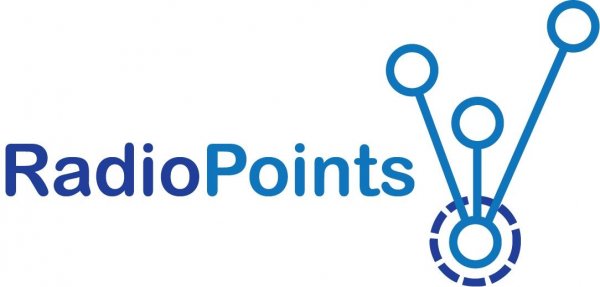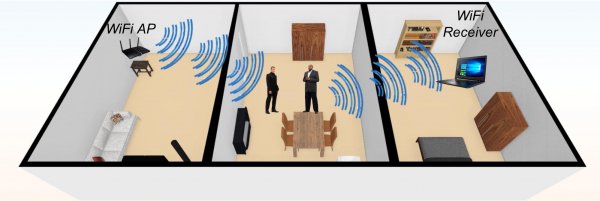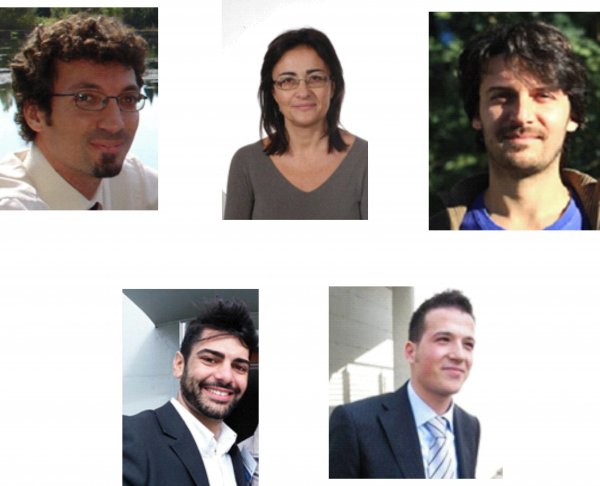Exhibitors 2018
- HOME AUTOMATION
- ROBOTICS
- YOUNG MAKERS (< 18)
- OPEN SOURCE
- 3D PRINTING
- DRONES
- EDUCATION
- FABRICATION
- HACKS
- NEW MANUFACTURING
- SCIENCE
- ENERGY & SUSTAINABILITY
- ART
- INTERNET OF THINGS
- MUSIC & SOUND
- RECYCLING & UPCYCLING
- KIDS & EDUCATION
- ARTISANS & NEW CRAFT
- CULTURAL HERITAGE
- GAMES
- WELLNESS & HEALTHCARE
- FASHION & WEARABLES
- FOOD & AGRICULTURE
- BIOLOGY
- 3D SCANNING
- AEROSPACE
- STEAM PUNK
- ARTIFICIAL INTELLIGENCE
- ARDUINO
- CROWDFUNDING
RF Sensing
This RF sensing system analyses RF signals and extracts information regarding people present in a particular environment with the aim to perform accurate recognition of human activity, behaviour, situation, and to estimate the number of people. RF sensing enables several applications, e.g. surveillance for security purposes, activity monitoring for independent living/healthcare, customer tracking for shopper analytics, etc.
Italy
Mauro De Sanctis, Simone Di Domenico, Ernestina Cianca, Tommaso Rossi, Alberto Caponi
Mauro De Sanctis is Assistant Professor at the Department of Electronics Engineering, University of Roma “Tor Vergata” (Italy), teaching “Information Theory and Data Mining”. From January 2006 to June 2008 he has been involved in the MAGNET Beyond European FP6 integrated project as scientific responsible of the activities on radio resource management. He is involved in the coordination of the Alphasat “Aldo Paraboni” Payload (Technology Demonstration Payload – TDP 5) scientific experiments for broadband satellite communications in Q/V band, jointly funded by ASI and ESA. He is serving as Associate Editor for the Space Electronics and Communications area of the IEEE Aerospace and Electronic Systems Magazine. His main areas of interest are: wireless terrestrial and satellite communication networks, data mining and information theory. He published more than 90 papers on journals and conference proceedings, 4 book chapters, one book and one patent.
Ernestina Cianca is Assistant Professor at the Dept. of Electronic Engineering of the University of Rome Tor Vergata, where she teaches Digital Communications and ICT Infrastructure and Applications (WSN, Smart Grid, ITS etc.). She is the Director of the II Level Master in Engineering and International Space Law in Satellite systems for Communication, Navigation and Sensing. She is vice-director of the interdepartmental Center CTIF-Italy. She is the Editor-in Chiefs of the CONASENSE (Comm/Nav/Sensing and services) Journal, River Publishers. She has worked on wireless access technologies (CDMA, OFDM) and in particular in the waveforms design, optimization and performance analysis of radio interfaces both for terrestrial and satellite communications. An important part of her research has focused on the use of EHF bands (Q/V band, W band) for satellite communications and on the integration of satellite/terrestrial/HAP (High altitude Platforms) systems. Currently her main research interests are in the use of radio-frequency signals (opportunistic signals such as WiFi or specifically designed signals) for sensing purposes, and in particular. Device-free RF-based activity recognition/crowd counting/density estimation and localization; UWB radar imaging (i.e., stroke detection). She is author/co-author of 100 papers in international journals and conferences.
Tommaso Rossi received his University Degree in Telecommunications in 2002, MSc Degree in Advanced Communications and Navigation Satellite Systems in 2004 and PhD in Telecommunications and Microelectronics in 2008 at the University of Rome Tor Vergata where he is currently an Assistant Professor (teaching Digital Signal Processing, Multimedia Processing and Communication and Signals). His research activity is focused on Space Systems, Extremely High Frequency Satellite and Terrestrial Telecommunications, Satellite and Inertial Navigation Systems, Digital Signal Processing for Radar and TLC applications. He is currently Co-Investigator of the Italian Space Agency Q/V-band satellite communication experimental campaign realized through the Alphasat Aldo Paraboni payload. He is Associate Editor for the Space Systems area of the IEEE Transactions on Aerospace and Electronic Systems.
Simone Di Domenico received both Bachelor and Master degrees in Internet technology engineering from the University of Roma “Tor Vergata”, in 2012 and 2014, respectively. He got the Ph.D. degree in Electronic Engineering at the University of Roma “Tor Vergata” in 2018. Currently, he is a post-doctoral researcher at the University of Roma “Tor Vergata” and his main research interests include the RF device-free human activity recognition and the RF device-free people counting.
Alberto Caponi received the Ph.D. degree in Microelectronics and Telecommunication at University of Rome "Tor Vergata". My research activities are focused on network security and data-centric security using cryptographic techniques such as Identity-Based and Attribute-Based schemes for authentication, privacy-preserving and access control. My interests are on Network Security, Cryptography and Cyber-Security.Alberto Caponi received the Ph.D. degree in Microelectronics and Telecommunication at University of Rome "Tor Vergata". My research activities are focused on network security and data-centric security using cryptographic techniques such as Identity-Based and Attribute-Based schemes for authentication, privacy-preserving and access control. My interests are on Network Security, Cryptography and Cyber-Security.
Ernestina Cianca is Assistant Professor at the Dept. of Electronic Engineering of the University of Rome Tor Vergata, where she teaches Digital Communications and ICT Infrastructure and Applications (WSN, Smart Grid, ITS etc.). She is the Director of the II Level Master in Engineering and International Space Law in Satellite systems for Communication, Navigation and Sensing. She is vice-director of the interdepartmental Center CTIF-Italy. She is the Editor-in Chiefs of the CONASENSE (Comm/Nav/Sensing and services) Journal, River Publishers. She has worked on wireless access technologies (CDMA, OFDM) and in particular in the waveforms design, optimization and performance analysis of radio interfaces both for terrestrial and satellite communications. An important part of her research has focused on the use of EHF bands (Q/V band, W band) for satellite communications and on the integration of satellite/terrestrial/HAP (High altitude Platforms) systems. Currently her main research interests are in the use of radio-frequency signals (opportunistic signals such as WiFi or specifically designed signals) for sensing purposes, and in particular. Device-free RF-based activity recognition/crowd counting/density estimation and localization; UWB radar imaging (i.e., stroke detection). She is author/co-author of 100 papers in international journals and conferences.
Tommaso Rossi received his University Degree in Telecommunications in 2002, MSc Degree in Advanced Communications and Navigation Satellite Systems in 2004 and PhD in Telecommunications and Microelectronics in 2008 at the University of Rome Tor Vergata where he is currently an Assistant Professor (teaching Digital Signal Processing, Multimedia Processing and Communication and Signals). His research activity is focused on Space Systems, Extremely High Frequency Satellite and Terrestrial Telecommunications, Satellite and Inertial Navigation Systems, Digital Signal Processing for Radar and TLC applications. He is currently Co-Investigator of the Italian Space Agency Q/V-band satellite communication experimental campaign realized through the Alphasat Aldo Paraboni payload. He is Associate Editor for the Space Systems area of the IEEE Transactions on Aerospace and Electronic Systems.
Simone Di Domenico received both Bachelor and Master degrees in Internet technology engineering from the University of Roma “Tor Vergata”, in 2012 and 2014, respectively. He got the Ph.D. degree in Electronic Engineering at the University of Roma “Tor Vergata” in 2018. Currently, he is a post-doctoral researcher at the University of Roma “Tor Vergata” and his main research interests include the RF device-free human activity recognition and the RF device-free people counting.
Alberto Caponi received the Ph.D. degree in Microelectronics and Telecommunication at University of Rome "Tor Vergata". My research activities are focused on network security and data-centric security using cryptographic techniques such as Identity-Based and Attribute-Based schemes for authentication, privacy-preserving and access control. My interests are on Network Security, Cryptography and Cyber-Security.Alberto Caponi received the Ph.D. degree in Microelectronics and Telecommunication at University of Rome "Tor Vergata". My research activities are focused on network security and data-centric security using cryptographic techniques such as Identity-Based and Attribute-Based schemes for authentication, privacy-preserving and access control. My interests are on Network Security, Cryptography and Cyber-Security.
A1 (pav. 5)





















































































